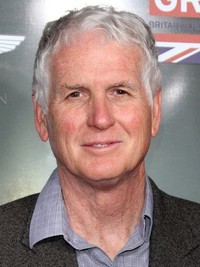Robert Yeoman

Without the cinematography of Robert Yeoman, the world may never have gotten the iconic aesthetics so rigidly associated with filmmakers like Wes Anderson, Noah Baumbach, and Paul Feig. Prolific photographer Yeoman started shooting renowned feature films in the 1980s, mounting a stellar résumé over the decades to follow. In 2015, Yeoman earned his first Academy Award nomination for "The Grand Budapest Hotel" (2014), a movie that exemplified his mastery of framing and aesthetic rhythm better than just about any other of his past works. Robert David Yeoman was born in Erie, Pennsylvania, on March 10, 1951, but grew up in the suburbs of Chicago, Illinois. Yeoman graduated from Duke University in 1973, and pursued film studies at the University of Southern California School of Cinematic Arts until graduating with a Master's degree in 1979. Shortly after completing his academic career, Yeoman began finding work shooting movies. His first job as a cinematographer was "Hero" (1983), an Indian film directed by the well-known Subhash Ghai, though it didn't take long for Yeoman to move into the world of mainstream American cinema. Throughout the remainder of the 1980s, Yeoman managed to collaborate with iconic directors like William Friedkin on "To Live and Die in L.A." (1985) and "Rampage" (1987) and Gus Van Sant on "Drugstore Cowboy" (1989). In the '90s, Yeoman began forming partnerships that would shape his career, most notably that with writer/director Wes Anderson. Yeoman shot Anderson's directorial debut, "Bottle Rocket" (1996), marking the first of seven collaborations between the two artists; that group included "Rushmore" (1998), "The Royal Tenenbaums" (2001), and "The Life Aquatic with Steve Zissou" (2004). Yeoman even developed a relationship with "Zissou" co-writer Noah Baumbach, shooting his film "The Squid and the Whale" (2005) shortly after. Despite working principally in indie cinema through the early 2000s, Yeoman went on to showcase a flair for mainstream comedies, leading photography on the Jim Carrey rom-com "Yes Man" (2008), the Jonah Hill/Russell Brand buddy comedy "Get Him to the Greek" (2010), and Paul Feig's popular female-led comedies "Bridesmaids" (2011) and "The Heat" (2013). Yeoman earned his first bit of awards attention with yet another Wes Anderson film, the period piece "The Grand Budapest Hotel" (2014), landing a nomination for Best Cinematography.